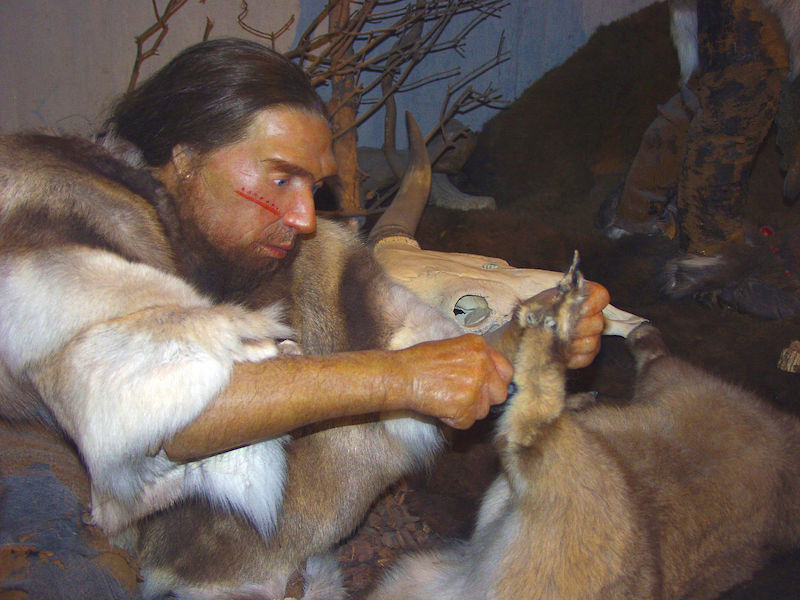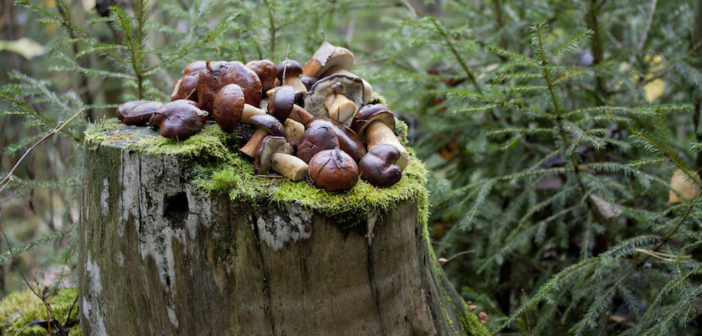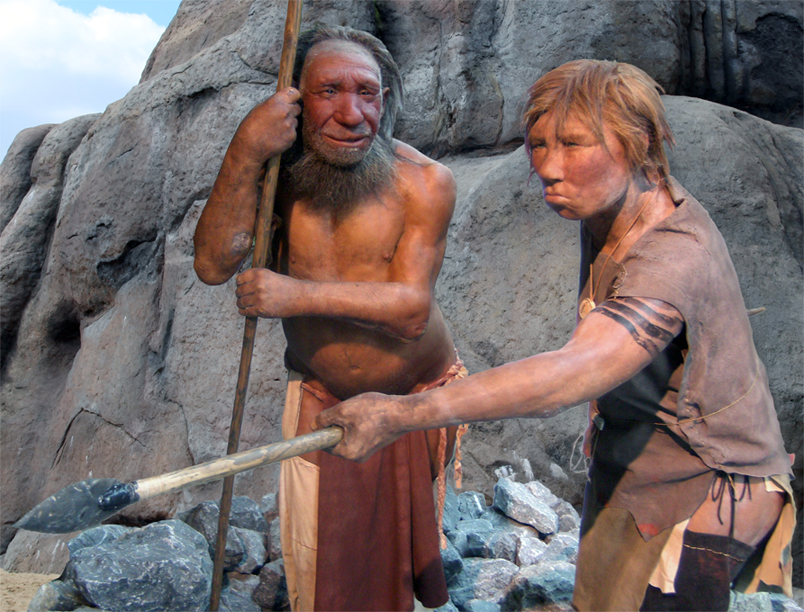A new study suggests that some of humans’ prehistoric relatives were vegetarian. Published in the journal Nature on March eighth, the study examined Neanderthal teeth collected from Spain, Belgium, and Italy, analyzing plaque to determine what they ate. The Neanderthals from El Sidrón Cave in Spain evidently did not eat meat, living on mushrooms, pine nuts, moss, and poplar instead.

Image credit Okologix, public domain
Neanderthals were an ancient species of human relative who lived in Europe and western Asia until around thirty thousand years ago. Though possibly driven extinct by Homo sapiens, the two species also interbred, and most people today have some Neanderthal ancestry. Until now, Neanderthals were believed to have been carnivorous. Although the new study shows that Neanderthals elsewhere in Europe were heavy meat eaters, that those in Spain were vegetarian indicates they did not require meat for nutrition.
By itself, the diet of Spanish Neanderthals says nothing about what Homo sapiens first evolved to eat. Nor is the diet of our prehistoric relatives necessarily relevant to what is ethical or healthy for humans to eat today. However, the new study may challenge theories that eating meat was essential for early human brain development. Despite stereotypes portraying Neanderthals as stupid, they actually had larger brains than modern humans, and carved boats, made art, and performed rituals millennia before Homo sapiens.
At the very least, the study disproves yet another stereotype of our prehistoric brethren, and suggests that even fifty thousand years ago, there were people who, for whatever reason, chose to refrain from eating animals.
(Featured image credit сергей грызунов, CC BY-ND 2.0)







4 Comments
The study that the article cites is a damn good application of using dental calculus to determine diet. But realistically, without looking at stable dietary isotopes, you are only really getting a “snapshot” into Neanderthal diet relatively shortly before the individuals sampled died. As such, the findings of the study should be interpreted as more recent diet, rather than the diet maintained throughout the life of the organism.
Really cool though!
You might want to reconsider the whole vegetarian Neanderthal idea. There were cannibalised Neanderthal remains at the Sidron site. This study just means they ate a lot of those plants, not only those plants.
No isotope study has shown that any Neanderthal group was vegetarian, and it would be functionally impossible for them to have been so. They would have had no B12, no vitamin A, and a dearth of other micronutrients like K2.
No, you can’t enough B12 from dirt and water. No, carotene is not vitamin A, and you can only convert it if you have eaten fat with it and most people don’t convert it well under even ideal circumstances.
Of course you are wrong about that. I have been vegan for 42 years (i.e. probably longer than most Neanderthals lived) and I have only this year begun taking B12 supplements as my recent blood tests showed I had low levels of B12 in my system. The reason for that is because following a leg infection I had to take a course of extremely powerful antibiotics which of course killed off all the bacteria in my digestive tract that create B12. Many people vegans and omnivorous are in fact supplied with B12 naturally and do not need to obtain it from external sources at all. Secondly, you are wrong because B12 is also obtained from the soil – which by the way is where animals that you eat get it from. Vegetarian Neanderthals would thus have got it from their vegetarian food! Finally, many meat eaters are now presenting as B12 deficient because the animals they eat never see wild food or soil and their vegetables are bought from supermarkets and they are washed clean of B12 producing bacteria. I find it remarkable that people feel they are qualified to comment on such issues as B12 deficiency in Vegans when they clearly know nothing about the science or the dietary element of Veganism.
The source document, the journal NATURE, is referenced in the article above, but here is the link again: https://www.nature.com/articles/nature21674#methods
It is the vegan diet that is deficient in vitamin B12 and not necessarily the vegetarian diet. Thank you for your comment.